Interbike 2010: Ridley adds higher-value upper-end models
Frame manufacturer capitalizes on Belgian heritage
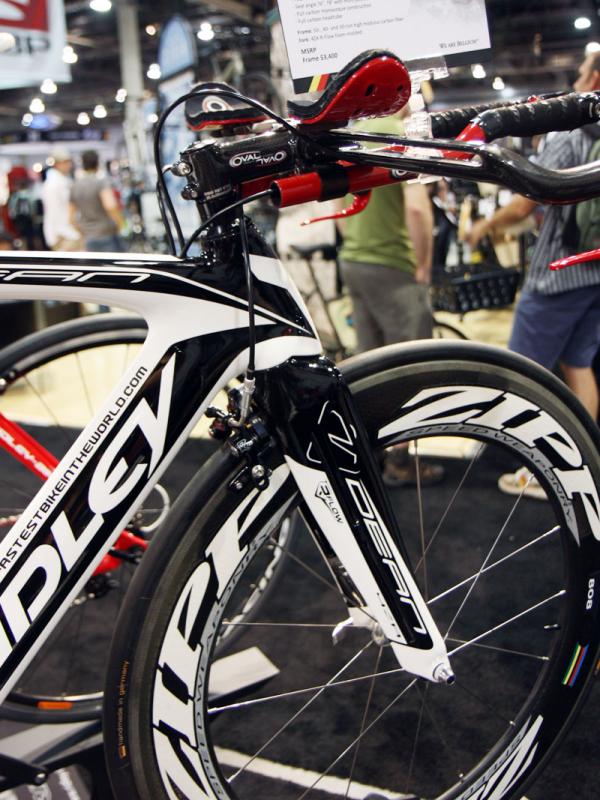
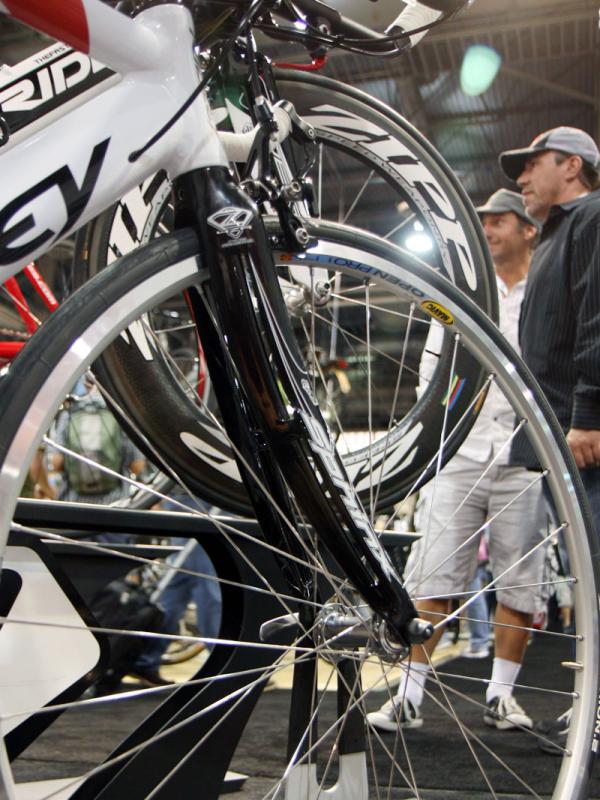
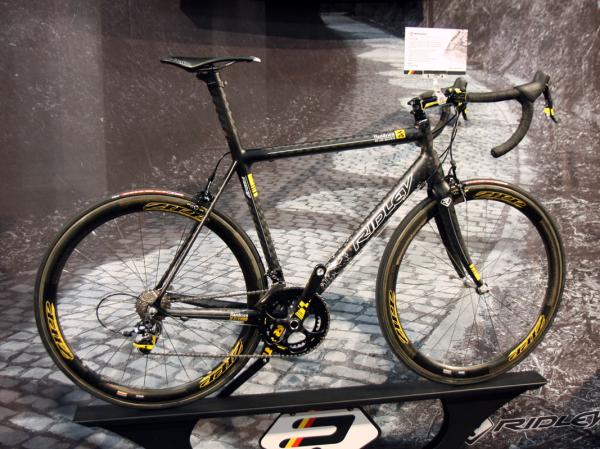
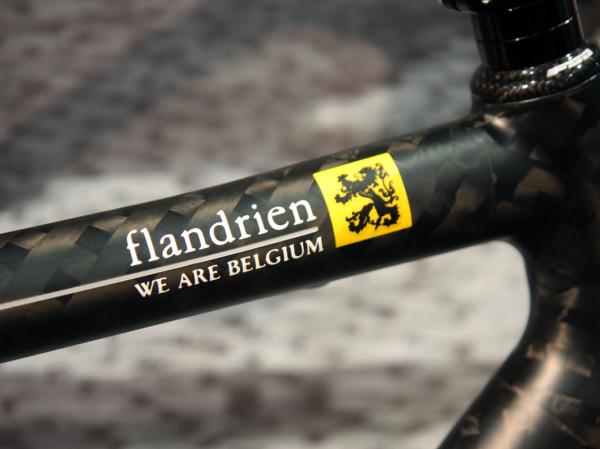
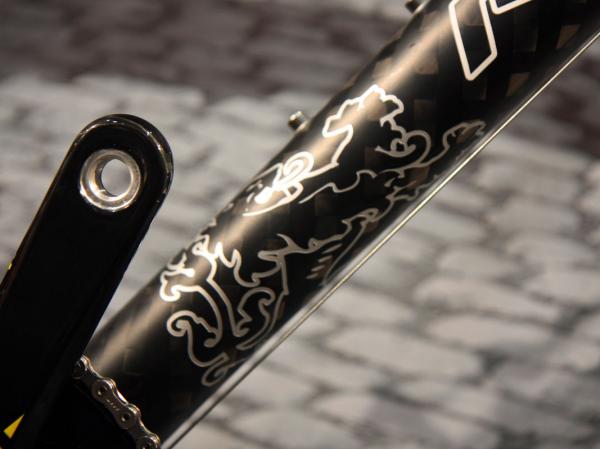
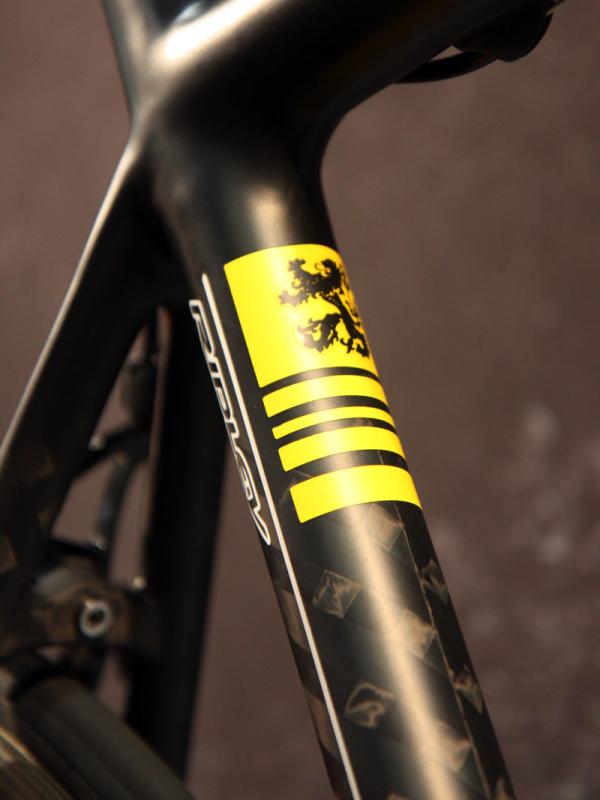
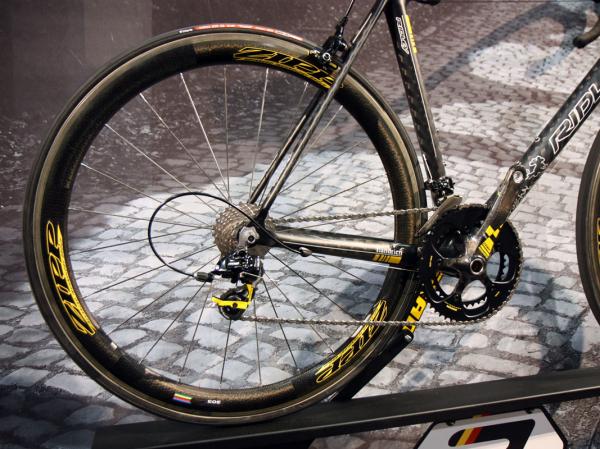
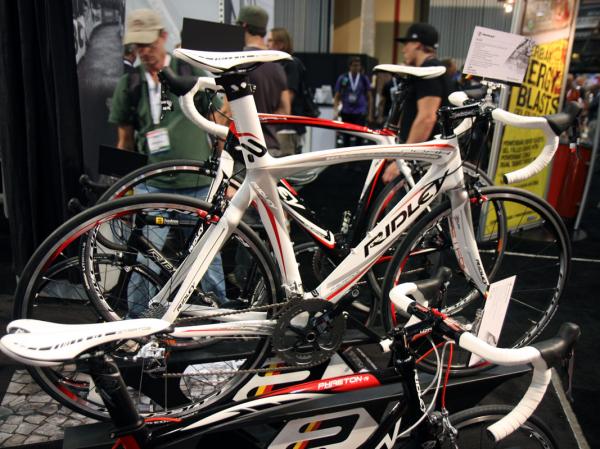
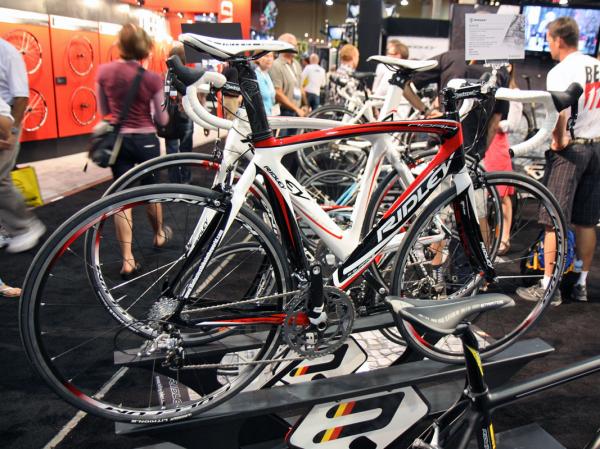
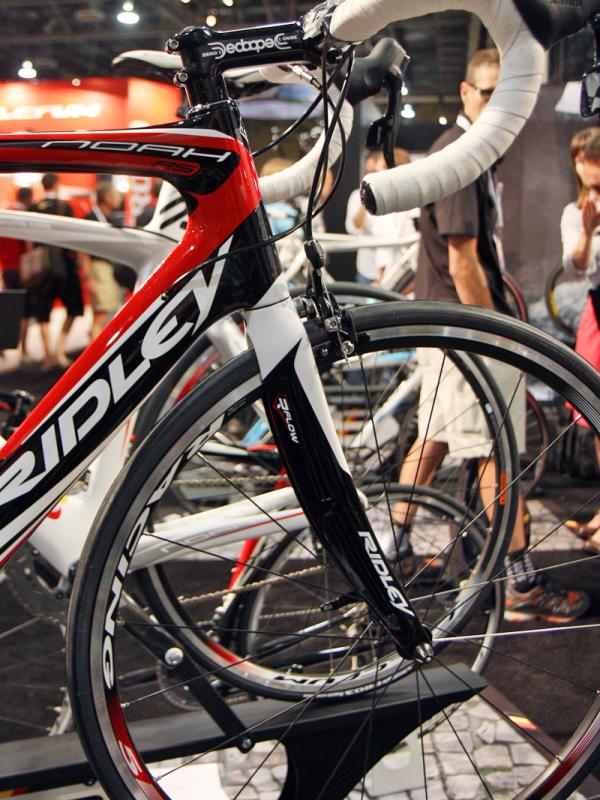
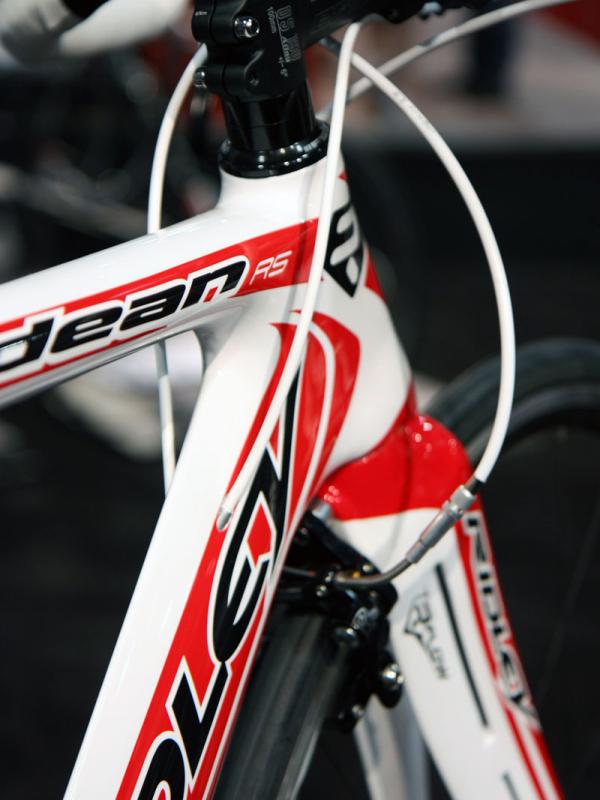
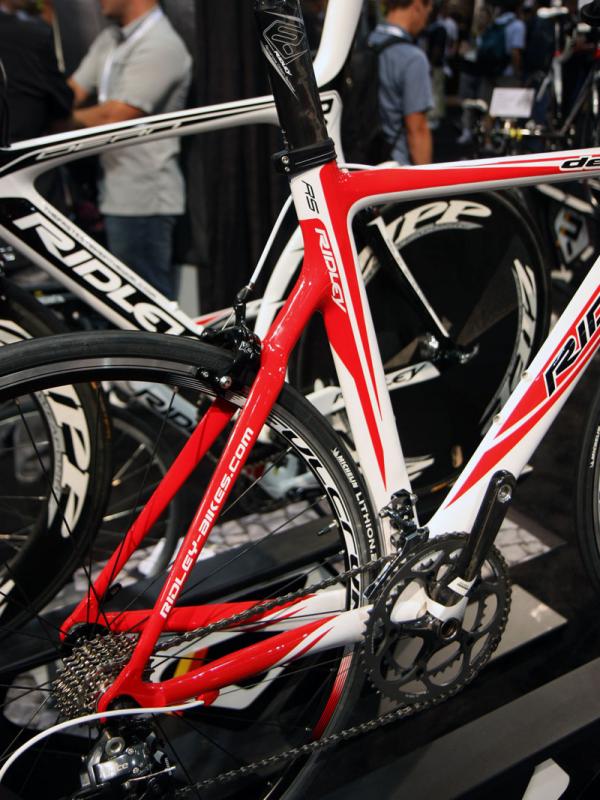
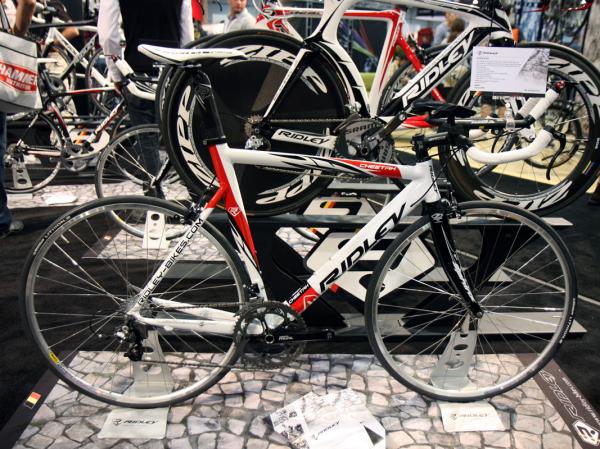
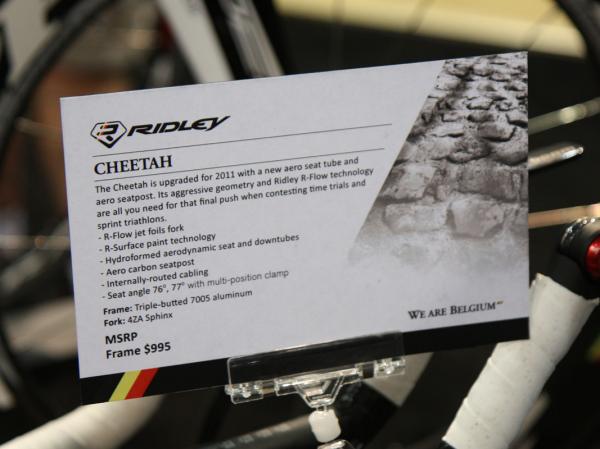
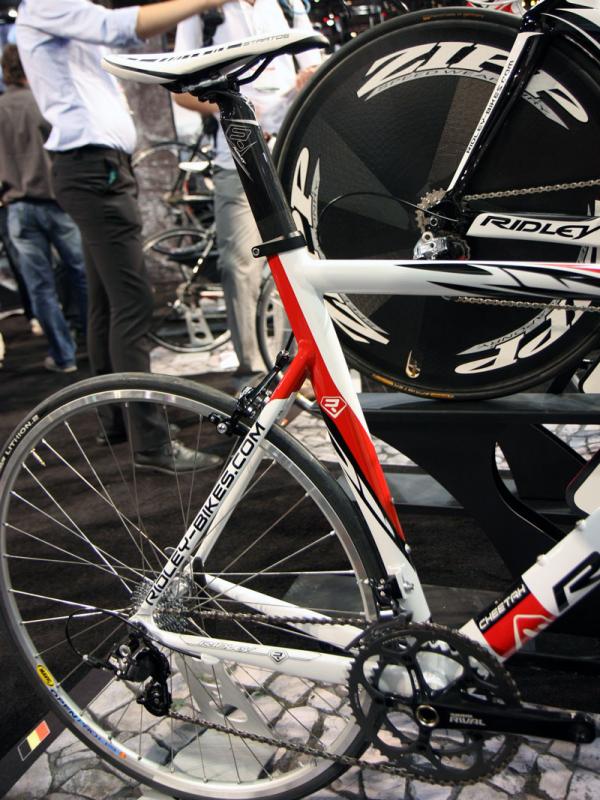
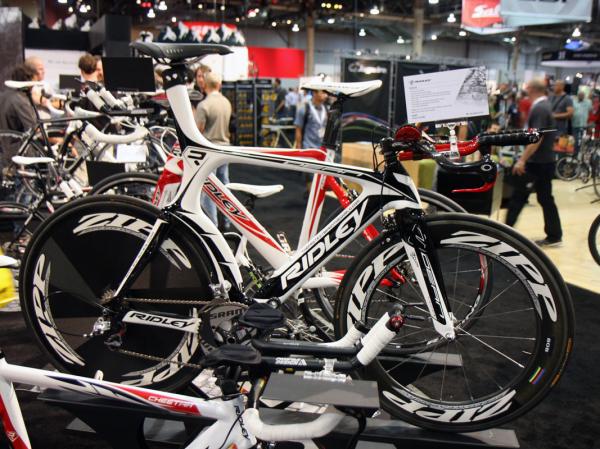
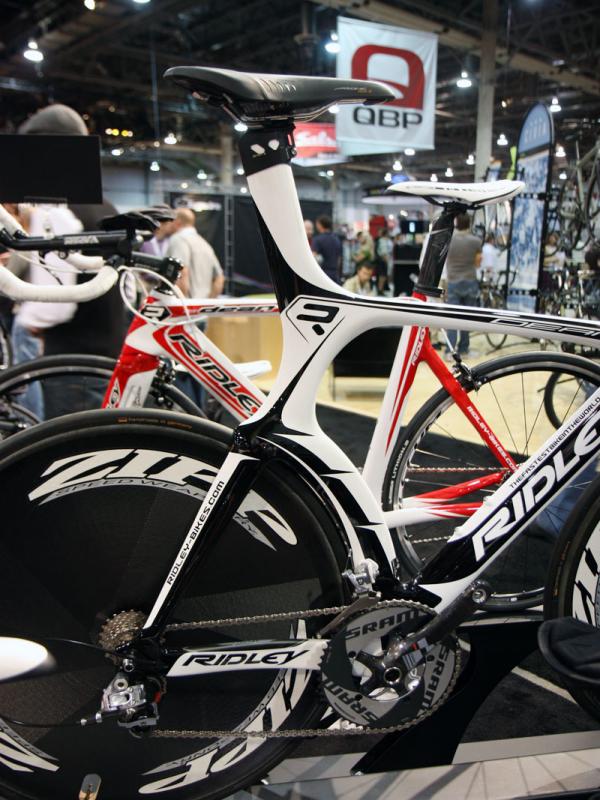
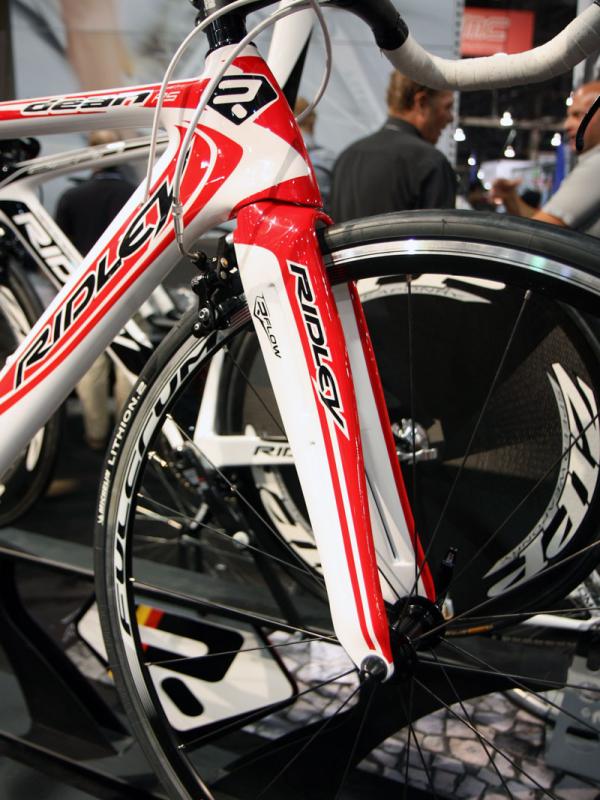
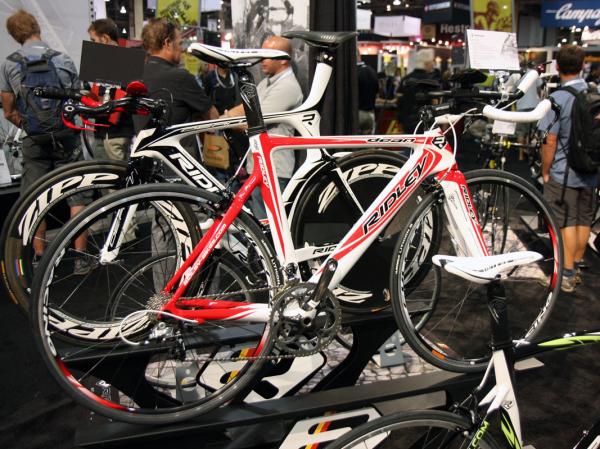
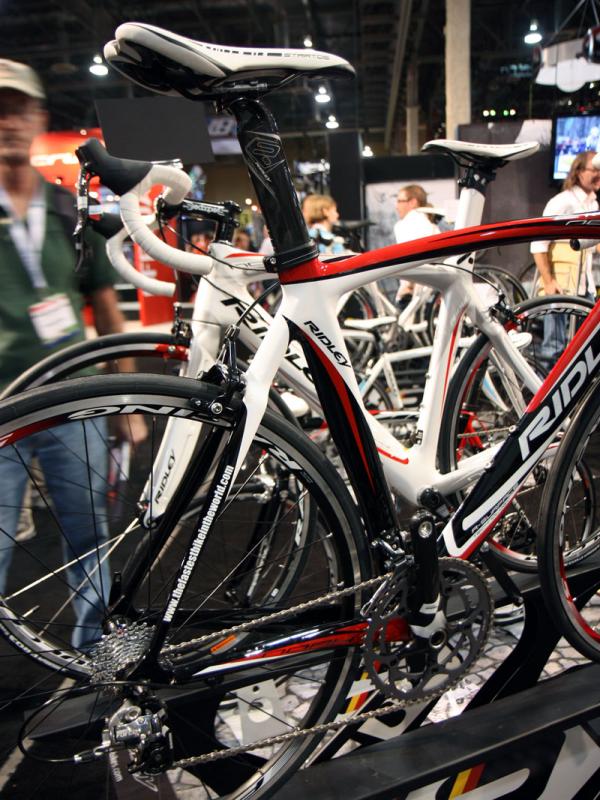
Riders who might be pining after Ridley's top-end Noah or Dean carbon fiber flagships frames but unfortunately can't handle their premium prices have new models to consider, with many of the same benefits but at a much more attainable cost.
Like the Noah, the new Noah RS uses a deep-section seat tube and down tube to help reduce aerodynamic drag, a similar split-blade R-Flow Jetfoil fork that supposedly pulls air away from the front wheel's churning spokes, the same internal cable routing setup, and even the textured R-Surface paint treatment on the sides of the seat tube to help air 'stick' to the frame.
The Noah RS omits the jetfoil shaping on the seat stays in favor of more traditional single-element tubes. And there's also a standard telescoping seatpost in lieu of the Noahs' integrated design, the chain stays aren't quite as massive and the front end makes do with a straight 1 1/8" steerer. The Noah RS is also built with lesser carbon fibers than the standard Noah's 50-, 40-, and 30-ton blend.
That being said, the Noah RS is expectedly more affordable at US$2,150 for a bare frameset as compared to US$3,150 for the standard Noah. A complete Noah RS with SRAM Force will retail for US$3,495.
While the Noah RS moves downscale, the regular Noah looks to move even further up – though not until the 2012 model year according to global marketing manager Eric Wallace. We unfortunately weren't permitted to shoot images but Wallace showed us a prototype split-blade Noah carbon fork with integrated mini-linear pull brake arms molded directly into structure.
Moreover, Ridley designers have blended the brake arms into the aerodynamic split-blade design, thereby not only cleverly hiding the brakes almost completely away from the wind but even using them as an aerodynamic structure to pull air out and away from the spinning front wheel just as before. And of course, the minimalist carbon fiber construction will save a substantial chunk of weight relative to a standard bolt-on caliper, too.
Over on the time trial and triathlon side, the new Dean RS likewise shares a few design cues with the standard Dean but with a straight seat tube and easier-traveling standard telescoping seatpost instead of the wildly curvaceous integrated one on the flagship model. It also has straight stays in place of the R-Flow Jetfoil ones. Chain stays are also downsized, the rear brake is moved to a standard position up on the seat stays, and the internal derailleur cable routing runs more conventionally through the down tube before popping out below the bottom bracket shell.
Get The Leadout Newsletter
The latest race content, interviews, features, reviews and expert buying guides, direct to your inbox!
Ridley does give the Dean RS the same 4ZA R-Flow full-carbon fork as the regular Dean but front-end geometry is altered with a taller head tube better suited to triathlon. Like on the Noah RS, the Dean RS is also built with less advanced carbon fiber than the regular Dean but the pricing differential between the two models is even bigger. Retail price on a Dean RS frame is US$2,150 as compared to the US$3,400 for its big brother and a complete Dean RS with SRAM Force will go for US$2,995.
US consumers will see Ridley more loudly touting its Belgian roots with two 'Flandrien' models for 2011. As compared to the usual multi-color paint schemes, the special edition Excalibur carbon fiber and Icarus SLS aluminum road models will sport all-black (or bare carbon in the case of the Excalibur) base finishes highlighted with yellow Flemish lions and other Belgian-inspired graphics.
Complete bikes will also get matching yellow componentry as well.
The Excalibur will be offered as a frame-only for US$1,995 or a complete bike with Shimano Ultegra for US$3,199. The complete Icarus with SRAM Apex will go for US$1,395.